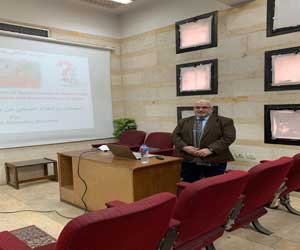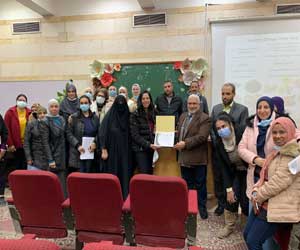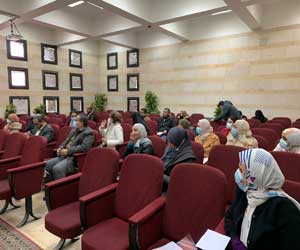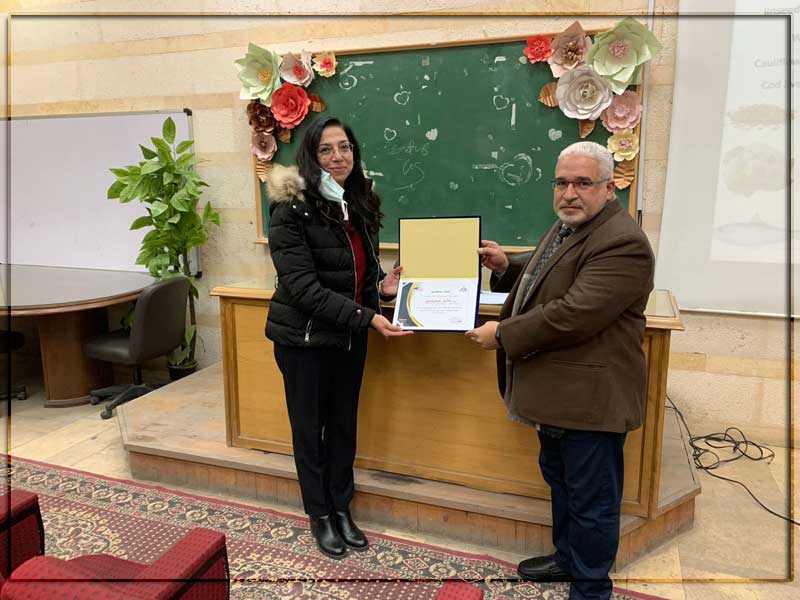The Faculty of Pharmacy discusses “Supplements or Healthy food... Which one owns the secrets of your health”
Under the auspices of Prof. Dr. Mahmoud El-Metini, President of Ain Shams University, Prof. Dr. Hesham Tamraz, Vice President of Ain Shams University for Community Service and Environmental Development Affairs, and Prof. Dr. Amani Osama Kamel, Dean of the Faculty of Pharmacy at Ain Shams University, and under the supervision of Prof. Dr. Rola Milad Labib, Vice Dean of the Faculty of Pharmacy at the University for Community Service and Environmental Development Affairs, the Community Service and Environmental Development Affairs Sector organized its third symposium, within the framework of the cultural season held by the Faculty. The symposium was entitled "Supplements or Healthy Food - Who Owns the Secrets of Your Health", during which Prof. Dr. Khaled Moselhy, Professor of Pharmacology, Faculty of Pharmacy, Cairo University, in the presence of several faculty staff of the faculty.
It was pointed out by Prof. Dr. Khaled said that healthy eating is much better than nutritional supplements. The best meals and foods are well-known, balanced foods rich in whole grains such as (porridge and beans) and vegetables, and that excessive use of nutritional supplements may harm kidney and liver functions.
Dr. Moselhi recommended: It is necessary to take vitamins through foods rich in them, which is vitamin C, which is found in abundant quantities in pepper, guava, kiwi, and lemon, and (zinc) is found in meat, chicken, yogurt, oats and lentils, vitamin D through exposure to the sun before ten in the morning and before five in the afternoon, or by eating salmon, tuna, yogurt and porridge.
He explained that the enemies of the immune system are exposure to harmful rays, nervous stress, isolation, lack of friends, dehydration and lack of drinking water, poor diet, processed foods, poor ventilation, alcohol and smoking, neglect of personal hygiene and lack of sleep at night, lethargy, lack of exercise, and the wrong use of antibiotics. Obesity, excessive consumption of any food or drink, even if it is natural, has side effects, adding that excessive advertising without scientific support for eating some herbs and plants may cause harm to the health of the public, so it is necessary to rely on scientific evidence and obtain it from reliable sources.
 |
 |
 |
||
.svg)




